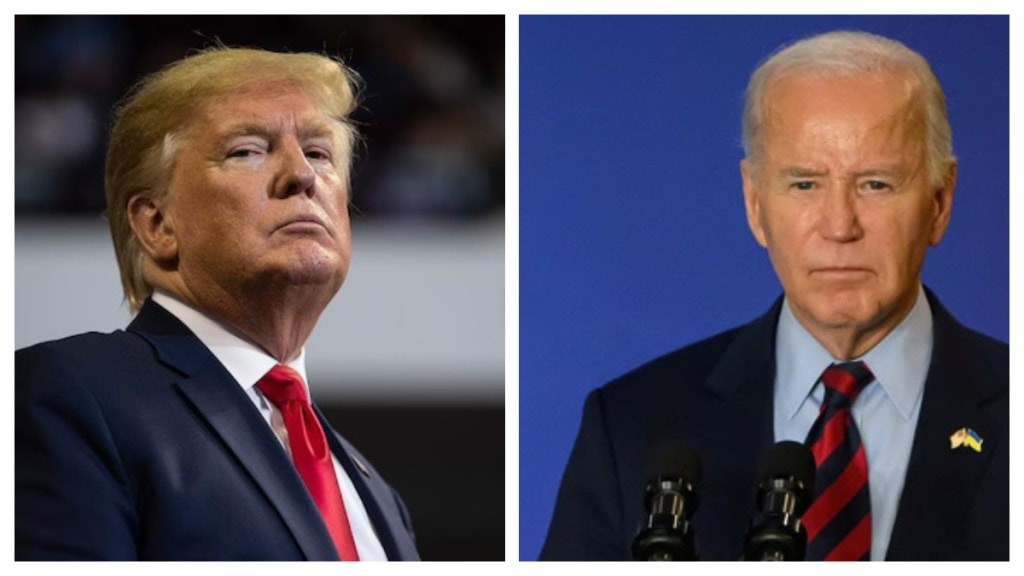The conflict in Syria has been one of the defining foreign policy challenges for the United States in recent years. However, under President’s Joe Biden and Donald Trump, US approaches to Syria have diverged sharply, reflecting broader differences in their views on American involvement in global conflicts. While Biden has positioned the US as a key player in shaping Syria’s future, Trump has consistently argued that America should distance itself from the situation. This contrast in policy stems not only from their differing views on Syria but also from their broader foreign policy philosophies.
Joe Biden’s Vision for a New Syria
When Joe Biden took office in January 2021, he immediately framed the fall of Syrian President Bashar al-Assad’s regime as a significant moment for the country and the Middle East. In his first public remarks on Syria, Biden called the ousting of Assad a “historic moment” for the Syrian people. For Biden, the end of Assad’s brutal rule, which had lasted over five decades under both him and his father, Hafez al-Assad, represented a “fundamental act of justice” and an opportunity to rebuild Syria with a new government and constitution.
Biden also acknowledged the risks involved in the post-Assad era, acknowledging the uncertainty of what would come next for Syria. However, his administration has made it clear that the US would be actively involved in shaping the country’s future, working alongside Syrian groups to create an independent, sovereign nation. As he stated in a press conference, “we will work with all Syrian groups to establish an independent Syria,” underscoring his belief that the US has a role to play in the region.
While Biden has focused on supporting the rebuilding of Syria, he has also maintained sanctions against Assad, warning that these would remain in place until the civil war ends. Furthermore, Biden’s policy includes keeping US military forces in Syria to continue efforts against ISIS and provide support to local partners. The US presence in Syria, according to Biden, is not only about fighting terrorism but also about ensuring regional stability and supporting allied nations such as Israel, Lebanon, Jordan, and Iraq.
Donald Trump’s “America First” Approach
In stark contrast, Donald Trump’s approach to Syria was rooted in his broader “America First” foreign policy, which prioritized US interests over global commitments. Trump frequently argued that the US had no business in Syria, declaring on multiple occasions that America should “get out” of the country. His rhetoric about the situation in Syria was clear: the US should disengage, as Syria was “not our friend,” and it was not America’s responsibility to intervene in the country’s civil war.
Trump’s stance on Syria was consistent with his broader skepticism toward US involvement in overseas conflicts. Although Trump had ordered a partial withdrawal of U.S. troops from Syria during his tenure, some 900 American soldiers remained in the country. Trump’s decision to maintain a military presence, despite his calls for withdrawal, reflected his reluctance to completely disengage, particularly when it came to counterterrorism operations against ISIS. However, his broader message was one of isolationism—arguing that the US should not be involved in Syria’s complex civil war.
Unlike Biden, who sees a clear role for the US in reshaping Syria’s future, Trump viewed such involvement as a waste of resources. His foreign policy was driven by economic nationalism, where military engagement was only justified if it served America’s immediate interests. For Trump, the cost of involvement in Syria was far too high, and he believed that countries in the region should handle their own issues without expecting US support.
Different Views on International Alliances
The difference in Biden and Trump’s policies is also evident in their approach to alliances. Biden’s policy on Syria stresses cooperation with other nations, especially those in the Middle East. His administration has been in close contact with Israel, Jordan, Iraq, and Lebanon, all of which have a vested interest in the outcome of the Syrian conflict. Biden’s foreign policy reflects a commitment to collective security and multilateral cooperation, especially in confronting regional instability and terrorist groups like ISIS.
On the other hand, Trump’s foreign policy approach was less concerned with alliances and more focused on reducing American commitments abroad. He questioned the utility of military alliances, including NATO, and regularly suggested that America should stop shouldering the financial burden for other nations. For Trump, countries like Israel and Saudi Arabia should bear more responsibility for their own security, and any US involvement should come at a cost to these nations. In the case of Syria, Trump was clear that the US should not be involved unless there was a direct benefit to American interests.
The International Response to US Policy
Biden’s decision to support the Syrian opposition and work toward a new government was welcomed by many Western leaders. British Prime Minister Keir Starmer praised the fall of Assad’s regime, calling it a positive development after years of atrocities. This alignment with Biden’s stance demonstrates a shared interest among Western allies in supporting a new political order in Syria. For Biden, this shift is not just about removing Assad; it’s about creating an environment where the Syrian people can determine their own future through democratic means.
In contrast, Trump’s policy of disengagement did not garner much international praise. While some countries, particularly in the Middle East, may have appreciated Trump’s “America First” approach, his reluctance to take a strong stance against Assad left many allies dissatisfied. Trump’s disinterest in regime change in Syria or efforts to support democratic movements made him a less attractive partner for nations invested in a post-Assad Syria.

